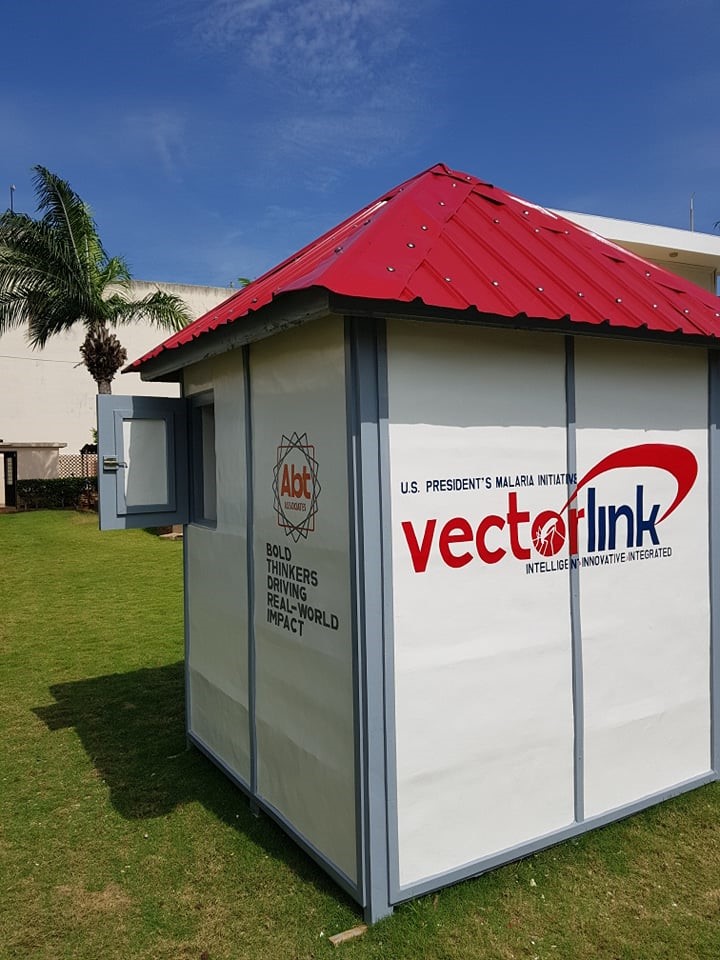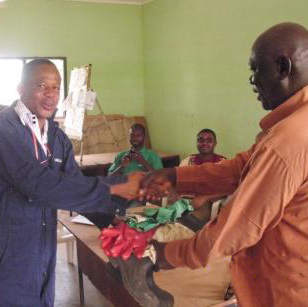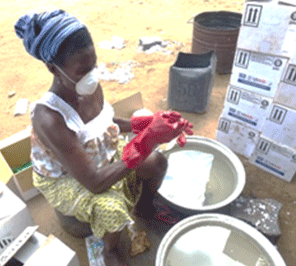
This guard house is one example of what can be built with the planks of wood made from The cardboard boxes used to transport insecticide bottles.
Indoor residual spray (IRS) campaigns are key to preventing malaria in communities by applying insecticide to indoor walls and ceilings where mosquitos rest. In Benin alone, the PMI-supported 2018 IRS campaign protected 1,321,758 residents through the spraying of 400,997 structures.
This large-scale operation, however, also resulted in 62,841 empty bottles of insecticide and 6,337 empty cardboard boxes. To ensure materials are safely disposed, PMI follows strict environmental best practices that adhere to both local and U.S. Government environmental protection guidelines.
Over the years PMI-supported projects have also partnered with local private companies and nonprofits to introduce new ways to reduce and repurpose packaging waste, benefiting both the economy and the environment.
The latest innovation has been to turn cardboard boxes into construction materials. After the 2018 IRS campaign, in collaboration with local nonprofit Germain Amadji & Fils s.a.r.l, PMI VectorLink Benin collected the uncontaminated cardboard boxes from the 2018 campaign for recycling. The boxes were stripped of plastic labels, shredded into small pieces and then grinded into a paste. The paste was mixed with a binder, composed of glue and dyes, and then molded into planks of material for construction and to make room partitions, ceilings, small furniture, art, and more.
By recycling the cardboard, 3,926 kg of biogenic carbon is sequestered in the raw material of the cardboard instead of being emitted into the atmosphere through incineration.
“In Benin, IRS waste goes from trash to treasure,” Dr. Filemon Tokponnon, head of the Vector Control Unit of Benin’s National Malaria Control Program, said.

Cleaned and decontaminated personal protective equipment from IRS campaigns being donated to farmers in Ghana
And these creative measures to reduce the negative impact on the environment are not unique to Benin. In Rwanda, our cardboard boxes have been turned into greeting cards by a fair trade organization that exclusively employs orphans who are the head of household. In Ghana PMI-supported projects have donated to farmers decontaminated coveralls, boots, and gloves that had been used by IRS spray operators. In Ethiopia, PMI-supported projects partnered with a manufacturing company to turn the plastic bottles into electrical conduits (watch a video of the process).

